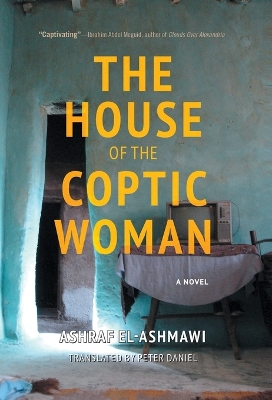Hoopoe Fiction
2 total works
Spanning twentieth-century Egyptian history and opening with the true story of a prominent Cairo businessman’s murder, this rags-to-riches story wondrously combines real-life events with fiction, told by a “magical storyteller”
It was in the spring of 1927 that Cairo's attention was captured by the shocking murder of prominent businessman Solomon Cicurel in his Nile-side villa in the upscale Zamalek district. It was a burglary that went wrong, and four culprits were soon arrested. Their trial was concluded swiftly, their punishments were decisive, and society breathed a sigh of relief.
In Ashraf El-Ashmawi's telling, there was a fifth accomplice, Abbas, who fled to his home in the countryside to lay low until the murder trial blew over. However, he did not escape empty-handed and kept stolen documents from Cicurel's villa, ones that he imagined would lead him to a hidden safe. Abbas hatched a plan to return to the capital, find the safe, and make his fortune. The first step was to place his sister Zeinab with Cicurel's widow, Paula.
Abbas’s rags-to-riches story unfolds as a tale of modern Egypt, taking in the Second World War, the 1952 revolution and rise of Nasser, the 1967 war, and the Sadat and Mubarak eras. Spanning the 1920s to the 1990s, El-Ashmawi deftly weaves together history with fiction in this intriguing English-language debut.
A Notable African Book of 2023 (Brittle Paper)
Tightly plotted and taboo-breaking, this explosive story takes readers to the roots of religious strife where the smallest of sparks can start a bonfire
Nader, an idealistic public prosecutor at the outset of his career, leaves Cairo to start a new posting in rural upper Egypt. On his first night, a mysterious woman named Hoda shows up at his lodgings. She is on the run from an abusive husband and, harboring a dark secret, seeks a new start in this small village and hopes to escape her harrowing past.
Nothing is to be easy for Hoda or Nader, and the dramatic circumstances of their first meeting signal the disquiet to come. It is not long before tensions between Copts and Muslims, already on a knife-edge, spiral into a spate of unexplained killings and arson attacks. The locals blame the trouble on the supernatural, and Nader is thrown into a quagmire of sectarian conflict and superstition that no amount of formal training could have prepared him for. His investigations are thwarted at every turn, by uncooperative witnesses and an obstructive police force. As Nader and Hoda each pursue happiness and justice, their parallel journeys struggle against the forces of ignorance, poverty, hatred, and greed.
With its echoes of Tawfiq al-Hakim’s Diary of a Country Prosecutor, this is a powerful and personal tale of conflict, crime, and upheaval in rural Egypt.

